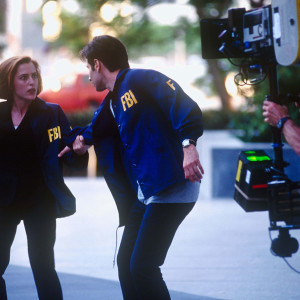Although every film is ultimately created by a wide-ranging team of talented artists, many believe that it is the Cinematographer who has the greatest impact on what a film evolves into, and how it emotionally connects its story (or not) to its audience.
That is, of course, not to take away from any of the numerous other artists and craftspeople who invest their blood and sweat into the extraordinarily challenging filmmaking process. But when it comes to how a story unfolds on film – from lighting to movement to overall visual storytelling – the beauty of a film lies in the eyes of the Cinematographer’s vision.
Award-winning Cinematographer, Matt Wise, gives us a View from Behind-the-Camera outlining the challenges, as well as the rewards, of working in the film industry. He also offers his words of wisdom for aspiring students who wish to pursue any career in the film industry – put simply “just keep shooting.”
BACKGROUND
What made you decide to become a cinematographer? Can you recall the moment it all became clear to you?
I wish I had a great story about a moment like that, but believe it or not, I fell into it because of bad high school grades. I always knew I wanted to be in the film industry, and go to school for it, but when it finally came time to apply, I was nervous about having good-enough scores to get into the school I wanted. At the time I was applying to Chapman University’s film school, they gave the applicants a list of industry professions they could have an emphasis in. I think the options were Directing, Editing, Cinematography, Sound Design and a few others. I wanted to go in as a director, but my father, who knows the industry, suggested I go in as a cinematographer because my grades weren’t outstanding, I would have a better shot at being accepted, and I could always switch into directing once I was there. Turns out he was right because I got in. I started taking cinematography classes, and quickly found that this was what I wanted to do.
How long have you now been working in the industry? What types of projects have you worked on?
I have been working freelance for about 10 years now, but started as a Personal Assistant as I feel almost everyone does and, frankly, should. In that time, I have worked on all types of projects; features, commercials, music videos, reality TV, you name it. When I graduated film school, the advice I kept getting from other working cinematographers was to just “keep on shooting.” So, I worked as a PA, gaffer, or camera assistant to make enough to pay the bills, and be able to shoot projects for free on the side. I built up the reel and made more and more connections over the years. I feel very fortunate to be able to support myself now as a cinematographer.
You’ve been praised for your “storytelling, lighting schemes and unique integration of camera movement.” Can you elaborate on your style, techniques, and name some of your recent work (commercials, narratives, music videos etc.)?
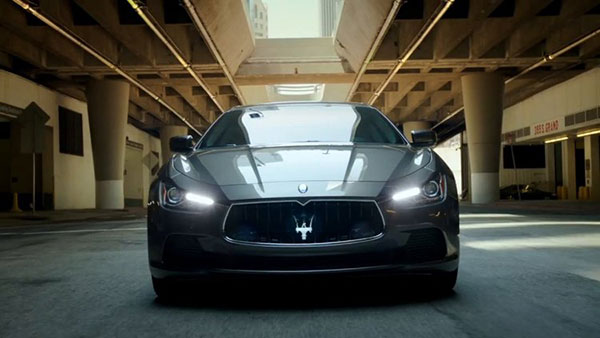
“Some DPs love using only available light, and while I completely understand that mindset, and often love that challenge, I’d always rather light.”
“Some DPs love using only available light, and while I completely understand that mindset, and often love that challenge, I’d always rather light.”
I have been lucky enough to watch and speak with some amazing cinematographers over the years, and just like all other artists, they have very different opinions about cinematography. They do, however, all seemed to agree on two points.
One, it’s all about the story or script. The visual tone you and the director want to convey to the audience is more important than just making beautiful images. Every cinematographer I have ever looked up to never made it about “getting great footage for a reel.” They always put the project before their own work.
The second point they kept pressing was that you have to do what feels right to you as the cinematographer. When people talk about a cinematographer’s style, they are essentially talking about how that person visualized the story in their mind. There is no textbook for it and no “right” way of doing it. Hearing that point from other amazing Directors of Photography, hit me really hard, and since then, I’ve tried to stay true to that. It’s also tough to explain your own style. Every project is different, but I can say I do like starting from scratch (a pitch-black set) and then lighting a scene. Some DPs love using only available light, and while I completely understand that mindset, and often love that challenge, I’d always rather light. I’ve just been lucky enough that enough people enjoy the choices I make visually.
MEMORIES
Who were your major influences as an aspiring cinematographer? Did you have a mentor(s)? Who are your major influences, if any, today?
In high school, I was fortunate enough to meet Allen Daviau, ASC, which was a huge privilege because even though, at the time, I barely knew what a cinematographer did, I knew he was right there next to amazing filmmakers for years, creating historic films. While I was in film school, he invited me to a few film shoots which, unbeknownst to me, would turn into a crash course in cinematography.
A few years later, while I was a PA on a network show, a camera assistant named George Hesse introduced me to a cinematographer named Maz Makhani. Maz was kind enough to invite me to many projects he was working on and that’s where I was able to see lighting come alive and really understand how it works. Film school is a fantastic introduction, but there is no substitute to being able to see how the “big boys/girls” do it.
I can’t name just a few influences because there are so many out there, most not even movies. When starting a project, many of the references I show my directors are still images that inspire a certain mood or tone.
Do you remember your first camera?
My first camera was my father’s VHS camcorder. I used it all the time after school.
What is the first memorable thing/event you’ve shot?
I used to make little stop motion monster movies with Lego men and model buildings from my train set. Because the VHS camera didn’t have a stop motion option, I would push the record button on and off as quickly as possible. All my earlier films were shot and viewed at 1 frame a second which, I’m sure, wasn’t very exciting.
THE JOB
What role does the cinematographer have in the production of a film, in general? How does a cinematographer’s role impact the final edit of a film?
The cinematographer’s role on a project is to visually set a tone and tell a story using light, composition and movement. If the visuals don’t enhance the story, I feel the cinematographer hasn’t done their job correctly and missed a great opportunity.
Many people don’t realize it, but a cinematographer also needs to be a great editor. One of my professors in film school said it best, “the only difference between us and photographers is that our work is also determined by the frame before and after it.” A big portion of our job as a cinematographer is to make sure the shot you’re working on seamlessly cuts in-between two others.
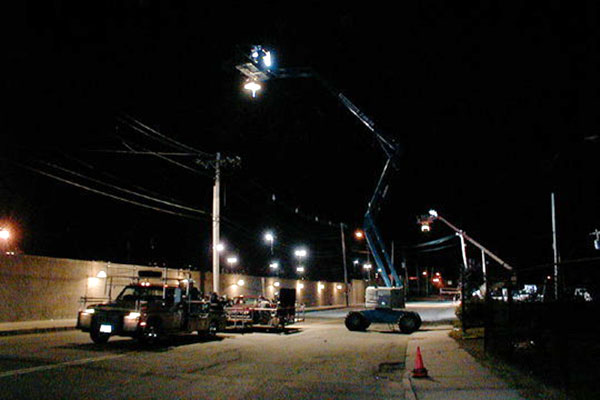
Condors, though a hazardous piece of equipment, are great for lighting up a large open area from a higher perspective.
What are some of the challenges you’ve faced as a cinematographer? What are some mistakes? How did you overcome them?
A joke among cinematographers is that we must be 50% artists, 50% technicians and 50% politicians. It’s a joke but it’s very true. All are challenging in their own way and any successful DP is a master at all three.
The artistry is obviously the most fun of the three. Depending on how much creative control of the visuals the director wants to give his or her DP, the challenge becomes creating the right tone or look for a film. If I am lucky to have enough time in preproduction, I like to take care of most of the artistic and technical challenges before filming begins. In pre-pro, you have time to sit with the material and just think. I’m a strong believer that movies are made in preproduction, and filming is just the busy work. One minute spent in preproduction is one minute less spent on set when time really matters and you’re under the most pressure. This isn’t to say that inspiration, and great last-second ideas, don’t come up while on set, but I can say that the chances of those great “Aha” moments greatly decrease when you have an assistant director angrily pointing at his/her watch while staring at you.
Many of the mistakes I’ve made have come out of either not having enough preproduction or not foreseeing a problem that would come up during filming.
For example, years back we had to shoot a large night exterior on a road full of street lights. We weren’t able to scout the location at night before the shoot and because I didn’t call the city to check what types of lights they were, I assumed all the lamps would be the classic, orange sodium vapor bulbs. On the night of the shoot we had a condor set up with orange gels on the large tungsten lamps ready to go, but as the street lights started to turn on, we quickly realized my assumption was wrong and they were all greenish, metal halides. We had to quickly change the gels. Luckily, other departments took longer than expected, so my mistake didn’t cost us a lot of time, but to this day, even if it’s on my own dime and time, I always check locations at night if the script requires a night exterior.
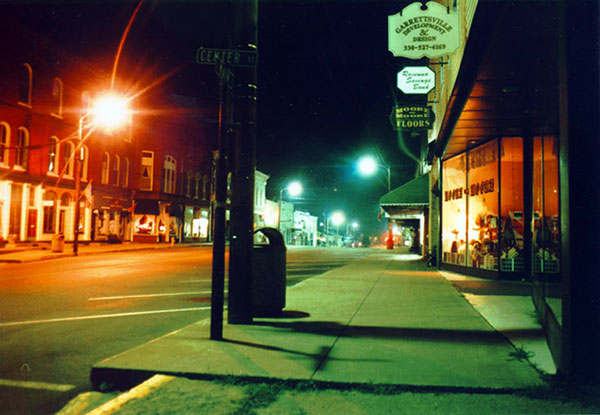
“…to this day, even if it’s on my own dime and time, I always check locations at night if the script requires a night exterior.”
An artist is only as good as their knowledge of the tools, and so the technical understanding is extremely important. There are potentially hundreds of decisions a cinematographer needs to make for every image they capture. Lenses, light selections, light placement, color temperatures, gels, filters, camera support – the list goes on and on and there’s no book of formulas to tell you what’s correct. To know how to do your job well, you need to know your tools inside and out.
Although there is no class in film school that teaches the politics of the industry, there should be. Not just cinematographers, but anyone who has a quick-moving career in the film business didn’t do it without being talented at managing their personality around others who may not be able to. There are all types of personalities you meet and work with, but the low-drama person that is friendly, calm, and hard-working will be recommended to many, and consistently be in high demand. For some, this is by far the most challenging aspect, and is, sadly, the reason why many don’t ever get to where they want to be in their careers.
ADVICE
For aspiring students who are interested in the film industry, how can you determine if Cinematography is a “right fit” for you? Do you have any advice for aspiring cinematographers?

“I can literally shoot, edit and even color grade in HD, a commercial, short film, or even a series of non-seneschal images, all on my iPhone. The gear we use on a professional set is a very small percentage of what cinematography is really about.”
Whether or not cinematography is right for a person is a really tough question, because there are so many different types of people that can become one.
My best advice is to just go try it. These days, there are absolutely zero reasons why someone can’t be a cinematographer right this moment. I can literally shoot, edit and even color grade in HD, a commercial, short film, or even a series of non-seneschal images, all on my iPhone. The gear we use on a professional set is a very small percentage of what cinematography is really about. So, for a person who is interested in cinematography, just go shoot! See if you enjoy coming up with camera moves and creating different tones using color and composition. If you do, then maybe it’s for you, if not, that’s okay too.
My next advice is the same advice I was given, which is “just keep shooting.” The reason why this is so important is because there has never been a single frame I have shot that I didn’t learn something from. Some of my best lighting ideas have come from natural lighting that I noticed while walking down the street to a get coffee. Someone told me once that “inspiration is everywhere,” and that’s really true if you are looking for it.
The other piece of advice is not just for aspiring cinematographers, but also for anyone who wants to work in the film industry. Do not give up. This industry is a f****** roller coaster of huge emotional ups and downs, and there is no way around it. Rejection and heartache can be everyday occurrence. I have seen, over and over, people I know simply quit and leave the industry, because it was no longer worth it for them. For some, it isn’t worth it, but if you want to be successful, you simply have to just keep going.
If you could go back in time and tell the young aspiring cinematographer (you) one thing, what would it be?
Great question. I would have probably told my younger self to shoot more. Even in college, I think about all the time and materials I wasted, just because I was busy doing things that didn’t relate to film at all. I also would have told myself to breathe because it’s all going to work out if I just keep shooting.
 Share On Facebook
Share On Facebook Tweet It
Tweet It


